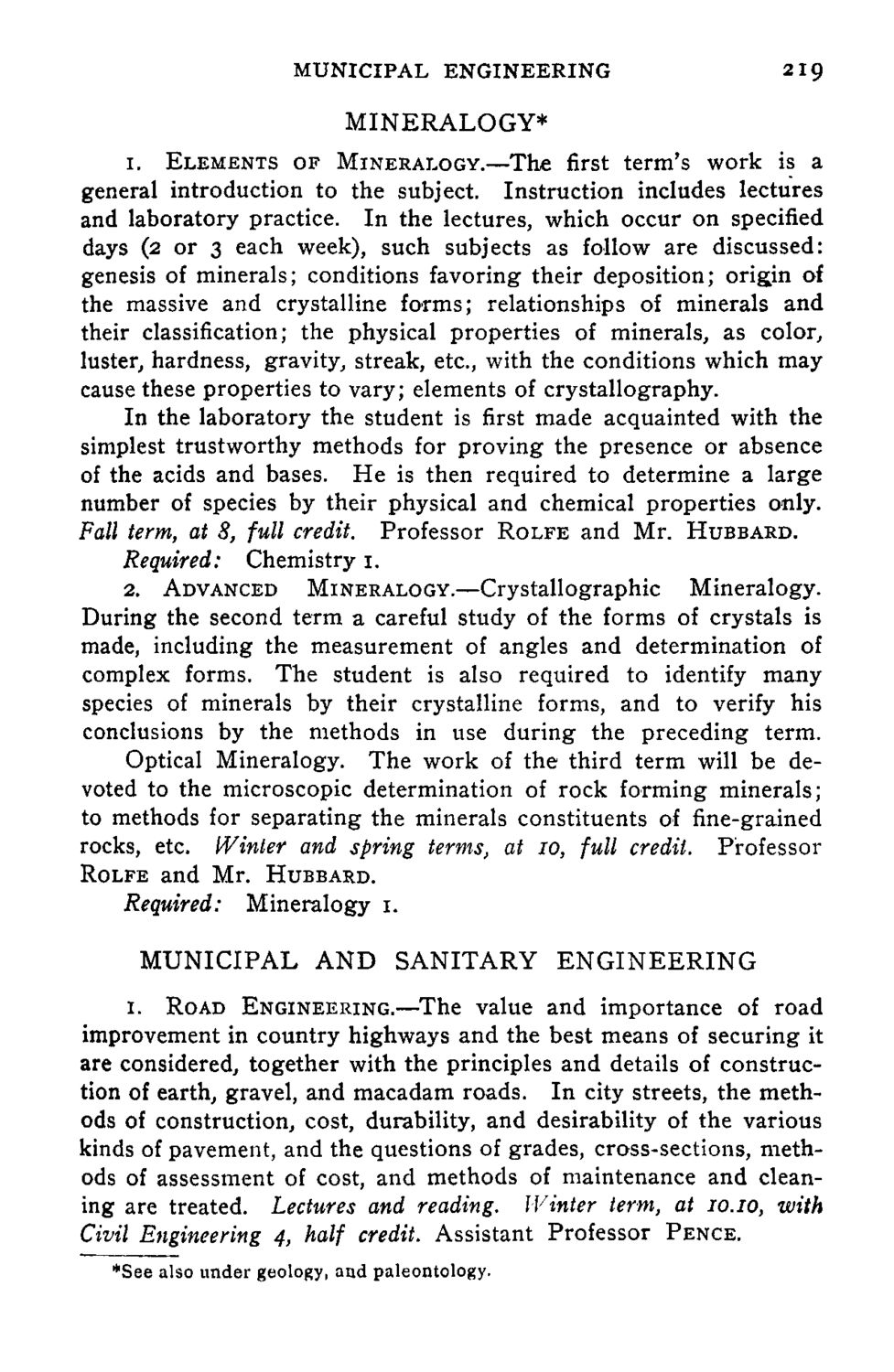| |
| |
Caption: Course Catalog - 1897-1898
This is a reduced-resolution page image for fast online browsing.

EXTRACTED TEXT FROM PAGE:
MUNICIPAL ENGINEERING 219 MINERALOGY* 1. ELEMENTS OF MINERALOGY.—The first term's work is a general introduction to the subject. Instruction includes lectures and laboratory practice. In the lectures, which occur on specified days (2 or 3 each week), such subjects as follow are discussed: genesis of minerals; conditions favoring their deposition; origin of the massive and crystalline forms; relationships of minerals and their classification; the physical properties of minerals, as color, luster, hardness, gravity, streak, etc., with the conditions which may cause these properties to vary; elements of crystallography. In the laboratory the student is first made acquainted with the simplest trustworthy methods for proving the presence or absence of the acids and bases. He is then required to determine a large number of species by their physical and chemical properties only. Fall term, at S, full credit. Professor ROLFE and Mr. HUBBARD. Required: Chemistry 1. 2. ADVANCED MINERALOGY.—Crystallographic Mineralogy. During the second term a careful study of the forms of crystals is made, including the measurement of angles and determination of complex forms. The student is also required to identify many species of minerals by their crystalline forms, and to verify his conclusions by the methods in use during the preceding term. Optical Mineralogy. The work of the third term will be devoted to the microscopic determination of rock forming minerals; to methods for separating the minerals constituents of fine-grained rocks, etc. Winter and spring terms, at 10, full credit. Professor ROLFE and Mr. HUBBARD. Required: Mineralogy 1. MUNICIPAL AND SANITARY ENGINEERING 1. ROAD ENGINEERING.—The value and importance of road improvement in country highways and the best means of securing it are considered, together with the principles and details of construction of earth, gravel, and macadam roads. In city streets, the methods of construction, cost, durability, and desirability of the various kinds of pavement, and the questions of grades, cross-sections, methods of assessment of cost, and methods of maintenance and cleaning are treated. Lectures and reading. Winter term, at 10.10, with Civil Engineering 4, half credit. Assistant Professor PENCE. *See also under geology, and paleontology.
| |